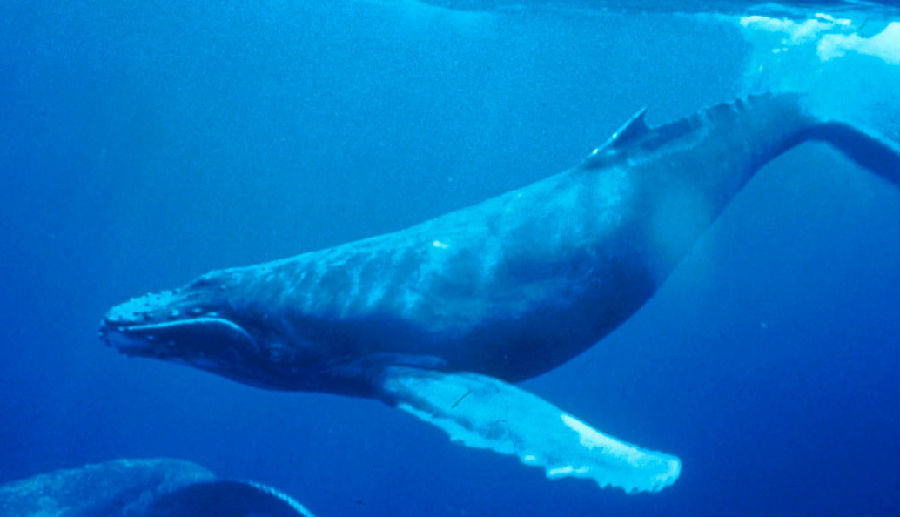Why are whales so big? One answer is simply that they can be.
为什么鲸鱼的体型如此庞大?有一个答案很简单,它们就是能长到这么大。
The size of land animals is constrained in part by their need to support themselves against the force of gravity.
陆地动物体型受限的部分原因是因为它们需要依靠自身对抗地心引力。
Marine creatures have that support provided free, by the medium they live in.
海洋生物可以通过它们生活的环境为媒介免费获得这种支持。
Even so, what is possible is not always sensible. Resources put into growth are unavailable for reproduction.
即便如此,可能的事情并不总是明智的。投入生长的资源无法再生产。
Given that whales can and do become big, however, a second question arises: what, if anything, stops them being even bigger?
鉴于鲸鱼可以且确实庞大,第二个问题就来了:如果有的话,有什么可以阻止它们变得更大?
Jeremy Goldbogen of Stanford University and his colleagues suspect that the answers to both questions are related to the animals' food supply.
斯坦福大学的Jeremy Goldbogen和他的同事怀疑两个问题的答案和动物的食物供应有关。
And, as they describe in a paper in Science, they have gathered data that illuminate how this might work.
正如他们在《Science》杂志中发表的一篇论文所述,他们收集了数据,阐明了可能的运作方式。

Broadly, big whales come in two varieties. Toothed whales, such as sperm whales, hunt individual prey.
总的来说,大鲸鱼有两种。齿鲸,如抹香鲸,捕食单个猎物。
Baleen whales suck in mouthfuls of water and extract small organisms such as krill, using fibrous buccal filters.
须鲸,用纤维状的口腔过滤器吸入大量的水,并从磷虾等小生物中吸取营养。
The biggest whales of all (blue, humpback and so on) are baleen whales.
所有鲸鱼中最大的鲸类(蓝鲸、座头鲸等)是须鲸。
This might be viewed as paradoxical, because on land, as predators get bigger, so do their individual prey.
这或许被认为是很矛盾的,因为在陆地上,捕食者越大,它们的猎物也越大。
Both toothed and baleen whales often hunt by diving deep—prey being more abundant at depth.
齿鲸和须鲸通常都潜入深海捕食,因为深海里的猎物更多。
To do this they have to hold their breath, which limits how long they can stay underwater.
为了去深海捕食,它们会屏住呼吸,这就限制了它们在深水中停留的时间。
One explanation of giantism in whales is that because bigger whales can hold their breath longer, they can spend more time hunting.
鲸鱼巨大体型的解释之一是因为体型越大,屏息时间越长,这样它们就能花更长时间在深海捕食。
译文由可可原创,仅供学习交流使用,未经许可请勿转载。


